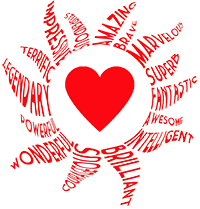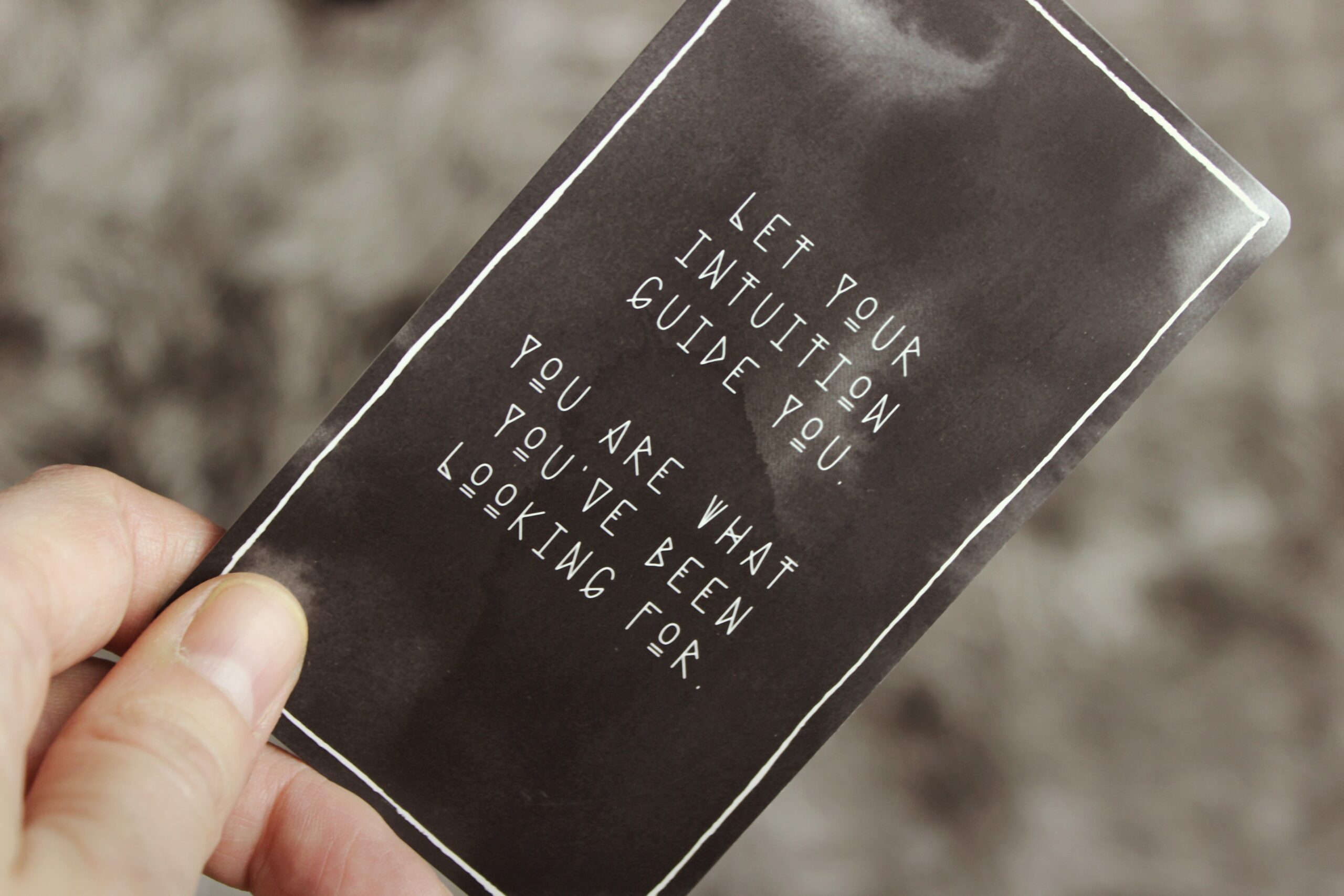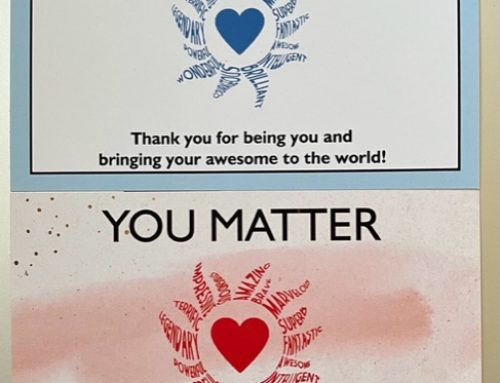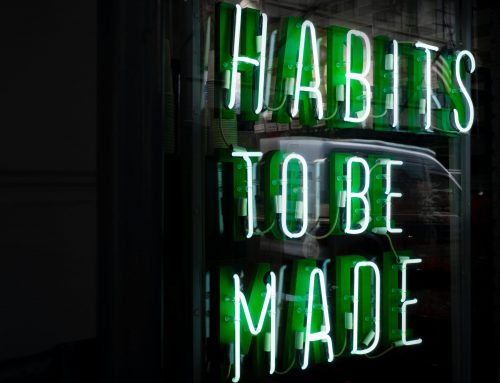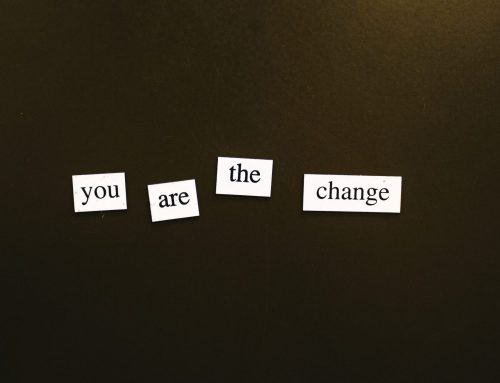The expression “to thy own self be true” comes from the play Hamlet. It is a pretty literal meaning. Be true and good to your inner self, your guide inside who is doing their best to give directions and instructions on healthy and happy living.
So why is it so hard to just listen to your intuition and gut when it is directing, sometimes yelling at us to do one thing and then we go and do something else? What is the glitch?
For as long as I can remember I have always had a sense of right and wrong for me. Is it 100% scientifically proven and accurate? Not at all. Yet there have been so many times when I was making a decision or taking an action inside of me there was a very strong voice saying yes do it or NOOOOO don’t do that. I sometimes would get a physical sensation like getting sweaty, shaky or tingly during this experience when I was going against my intuition. When I followed my gut instinct my energy soared, I felt peaceful and light as a feather.
“I have your back, With love. Intuition” Author Unknown
Does this mean that each and every decision I only make relaying on my gut feeling, especially more complex ones? Not at all. There are many times I do some decision making “pausing” so I can make sure that is the decision I want to make and feel right about making. Other times I do research or get feedback from others. When I make decisions I feel good about, even challenging ones, I always feel peaceful and balanced within my soul. There have been many times my decision for myself did not align with what others thought I should do. That is okay because they were gut instincts I followed because they were right for me.
In a Psychology Today article written by Dr. Susan Krauss Whitbourne states “Remmers and her collaborators noted that intuition can be beneficial, “especially in situational contexts in which a person is under stress, time pressure, and when facing complex problems” because “intuitive processes often lead to judgments with higher diagnostic value for the to-be judged criterion than rational-analytic processes of reasoning” (p. 283). In other words, trust your gut when you don’t have much time to think through all the implications of what’s happening around you.” Yes even researchers are backing up the use of your own personal intuition.
A Hey Sigmund article also backs up the science behind intuition. Karen Young states “Researchers at Leeds University analyzed a hefty pile of research papers on intuition. They concluded that intuition is a very real psychological process where the brain uses past experiences and cues from the self and the environment to make a decision. The decision happens so quickly that it doesn’t register on a conscious level.
Intuition exists in all of us, whether we acknowledge it or not. The more we can learn about it, the more we can use it to shape our lives for the better.
The human brain has two ‘operating systems’. The first is quick, instinctual and effortless. This is where our intuition lies. Intuition works by drawing on patterns collected by our experience and when we have to make a quick decision about whether something is real, fake, feels good, feels bad, right or wrong, we draw on these patterns. It all happens ‘offline’, outside our conscious awareness.”
“Trust your hunches. They’re usually based on facts filed away just below the conscious level” Joyce Brothers
An article in Bustle by Raven Ishak says “For instance, licensed clinical psychologist Sarah Schewitz states, “Intuition is that sneaking suspicion that you feel when something is not right but you can’t put your finger on why. Intuition can be a powerful guiding force and is more developed for some than others. Some people feel a strong urge or sense in there core when something is wrong while others, with a less developed intuition, might feel a small inkling that they aren’t really sure how to interpret it. Some people are born with a strong intuition and know how to listen to it from an early age whereas others develop their intuition or tune into it as they grow a stronger sense of self-confidence. The more that you love and trust yourself, the more in touch you become with your intuition.”
While this description may sound familiar, some might get their intuition confused with their scared ego (AKA the thing that keeps us from taking high-calculated risks and mistakes). So how does one tell the difference? Well, if you’re making a decision based out of fear, then it’s probably your ego.”
So if you are a non intuition user how do you start? How do you begin to listen to your inner voice so you can be true to yourself?
Begin with taking time to listen to the thoughts that your intuition is declaring to you. Trying to guide you towards decisions that are right for you. Pay attention to how your body is acting or reacting. My body sends me strong personal signals when I am making poor choices for myself along with really good ones. Has your energy every become more positive when you made a decision you feel really good about? That is your body responding with a giant thank you! There may be times you need to pause, take a break, to sort through a decision. It is totally healthy to do that. Your intuition will continue to express what is right for you while you determine what you are going to do. If you are feeling depressed or anxious hose emotions can influence your decisions in not so good ways so keep that in mind. Also your ego does not always give good information, especially when scared (as in rejection or you can’t do this) and will put up all sorts of barriers. Keep those reactions in perspective.
“You know the truth by the way it feels” Author Unknown
Most incredible person you have so much good inside of you! Listen to what your gut and intuition are telling you because they only want wonderful things for you!
May your to thy own self be true💜
Photo by Jen Theodore on Unsplash
